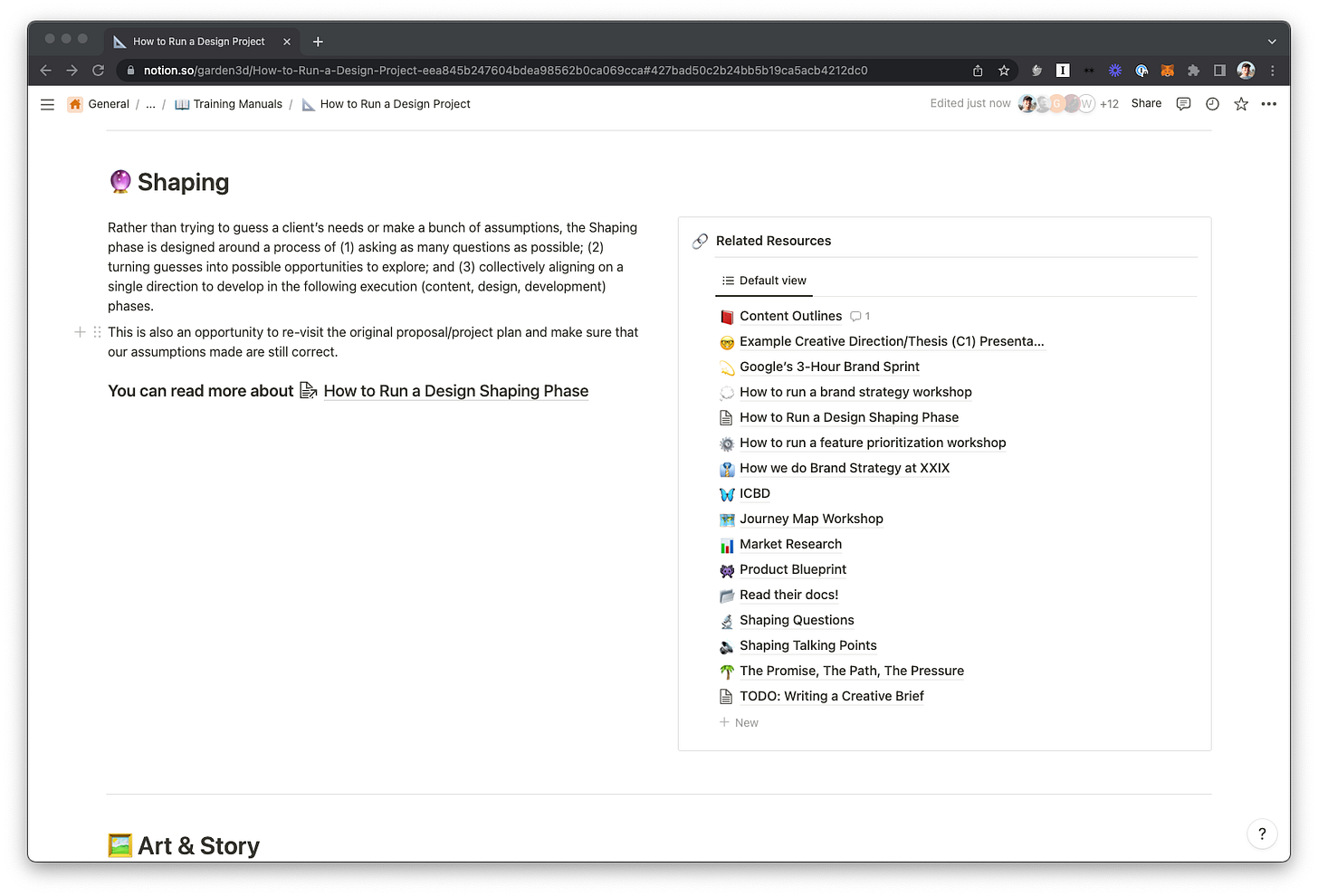Platform teams provide the tools for other teams
So that other teams can be more capable at a certain thing
The design systems team! The user research team! ProductOps! The infrastructure team!
These teams are platform teams. Their tools and output are usable by other teams so that those teams can do a certain thing well.
CPJ recently wrote How Capabilities Evolve. It’s great!
He talks about how it’s healthy to think of a matrixed capability team (R&D, Customer Strategy) as on its way to becoming a “platform team.” These platform teams provide an API that other teams use to be more capable at a certain thing.
Platform teams provide other teams the tools to better do X [design/infrastructure/understand their customer]. A platform team’s “customer” is internal.
I think of these as “Platform Teams” – teams that build things that improve business performance. Things that raise the bar. Things that allow businesses to do things they weren’t able to do before.
I think his insights on platform teams in large orgs apply to smaller orgs too. At least in my experience.
Creating a strategy “platform team” in a 30-person org
garden3D is a 30-person design & dev client services business. We don’t advertise it much, but we have a strategy team.
Why? To us, a good strategy helps our design and development organizations deliver more complex projects on time, within budget, and aligned with our client's goals. Now, we’re starting to think about what a standalone strategy offering would look like. (How can we actually help our clients better achieve their business goals?)
Before our strategy capability, garden3D was Sanctuary Computer, focused on just engineering. We created a strategic capability to help us be better at, well, strategy! And I was brought on as the first full-time member of that team.
We never intended our strategy service to be as profitable as our design and dev services. Our strategy service often operates as a loss, if we’re looking purely at the cost of having two full-time strategists and the profit we make from them doing shaping work. But we were okay with that loss. Having strategy in-house helped us win and deliver more complex design and development work, which ultimately would makes us more profitable.
But! To a designer or dev, Shaping (our strategy phase) feels like a mystic art. With no spell book. People figure out how to Shape out as they go.
This was a sign that my team, the strategy team, can do a better job of making our tools usable so that the business is more capable at Shaping. So we’re currently focused on making sure anyone can run a Shaping phase. Which means: making usable strategy tools!
More from Clay in How Capabilities Evolve:
…there’s a mindset shift from “we control what the businesses do,” to “we are out of a job if the businesses don’t want to use what we made.”
100%. Take a design systems team at a large company. The point of a design systems team isn’t to control the design output for every product team. The point of a design systems team is to give other designers the tools to quickly produce consistent, quality designs for their specific project.
I don’t see my role as “controlling the Shaping phase on every project.” I see my role as “creating the tools for teams to capably run a Shaping phase.” If these tools aren’t being used, I’ll learn why they aren’t being used, so that they can become more useful.
…So the skills need to change, too: the folks in those “Shared Services” probably need more of the core capability skills than they need General Management skills.
This also means that I need to improve my own strategy skills! I was a studio lead for the past 1.5 years, so my “general management skills” have grown much more than my strategy skills. Now that I’ve stepped down from a studio lead role and am back to focusing on strategy, it’s time I up my strategic chops.
They probably need to have the ability to make software-ish versions of their outputs without asking for help.
We’ve been working on a toolkit for running a Shaping phase:
…They probably need to be able to sell. They probably need to be able to consult.
Absolutely. I’ve long believed that some of the skills from my consulting life are the same skills a product strategist needs. And now that I’m more focused on creating a strategy toolkit, my “clients” are now my colleagues!
🛠🪛🔩
Platform teams aren’t meant to control output. They’re meant to help their organization be more capable at a certain thing. So that the business improves in the long run.
Have you worked on a platform team? Or consulted for one? What have you seen work well?
Relevant Reading
What is a platform engineering team, and why do we need them?
Stream-aligned teams, enabling teams, complicated subsystem teams, and platform teams
See you next week,
–tim




